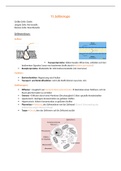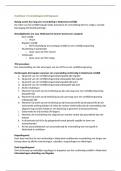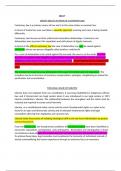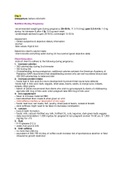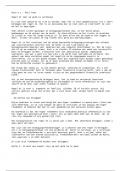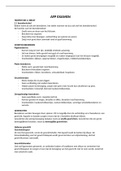Interview
Notizen Biologie
- Course
- Institution
Lernzettel für die mündliche Matura in Biologie, welche Zellbiologie, Mikroorganismen, Ernährung und Verdauung, Stofftransport, Atmung, Botanik, Immunsystem, Informationssysteme (Nerven- und Hormonsystem), Fortpflanzung, klassische Genetik (Mendel's Gesetze/Regeln der Vererbung), Molekulargeneti...
[Show more]
